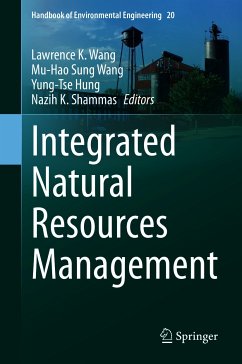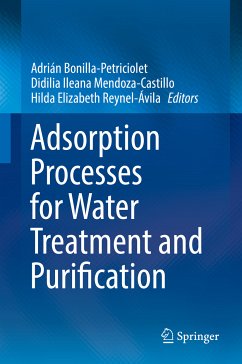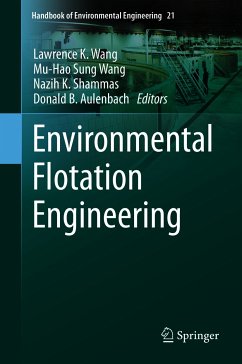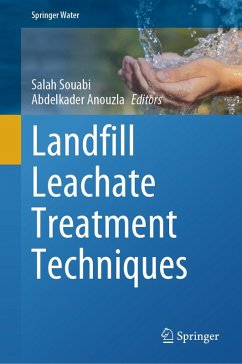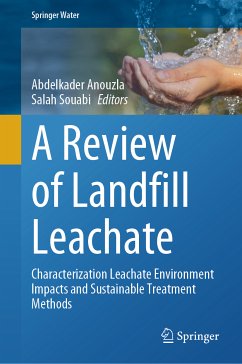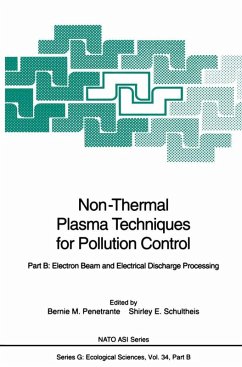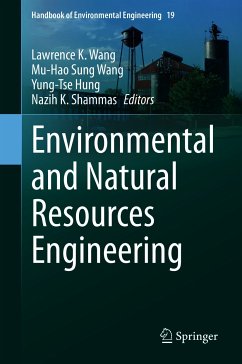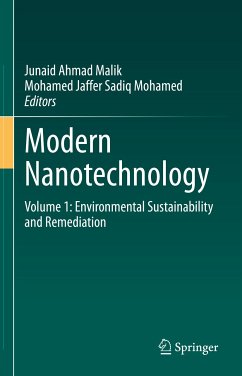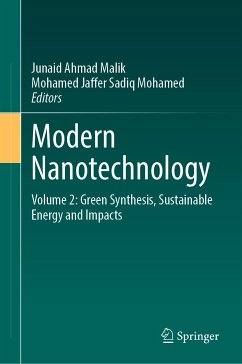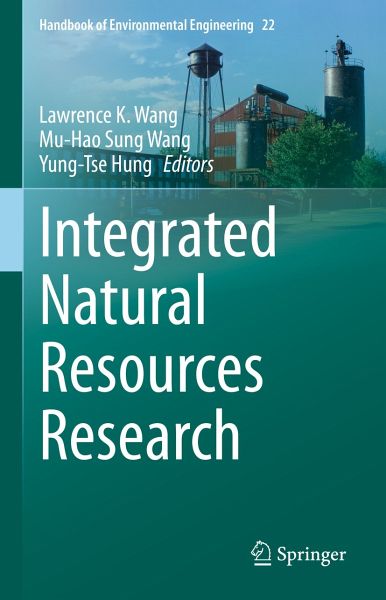
Integrated Natural Resources Research (eBook, PDF)
Versandkostenfrei!
Sofort per Download lieferbar
104,95 €
inkl. MwSt.
Weitere Ausgaben:

PAYBACK Punkte
52 °P sammeln!
This book is a sister volume to Volume 20 of the Handbook of Environmental Engineering Series, "Integrated Natural Resources Management", and expands on the themes of that volume by addressing the conservation and protection of natural resources in an environmental engineering context through state-of-the-art research methodologies and technologies. With a focus on water and wastewater treatment, the book takes a multidisciplinary approach to provide readers with an understanding of developments in natural resources technology over the last few decades, and how technology and industry methods ...
This book is a sister volume to Volume 20 of the Handbook of Environmental Engineering Series, "Integrated Natural Resources Management", and expands on the themes of that volume by addressing the conservation and protection of natural resources in an environmental engineering context through state-of-the-art research methodologies and technologies. With a focus on water and wastewater treatment, the book takes a multidisciplinary approach to provide readers with an understanding of developments in natural resources technology over the last few decades, and how technology and industry methods will progress to ensure cleaner and sustainable methods of natural resources management. The key topics covered include biological activated carbon treatment for recycling biotreated wastewater, composting for food processing wastes, treatment of wastewater from chemical industries, agricultural waste as a low-cost adsorbent, and the invention, design and constructionof potable water dissolved air flotation and filtration plants. The book will be useful to environmental resources engineers, researchers, water treatment plant managers, chemical engineers, industrial plant managers, and environmental conservation agencies.
Dieser Download kann aus rechtlichen Gründen nur mit Rechnungsadresse in A, B, BG, CY, CZ, D, DK, EW, E, FIN, F, GR, HR, H, IRL, I, LT, L, LR, M, NL, PL, P, R, S, SLO, SK ausgeliefert werden.



